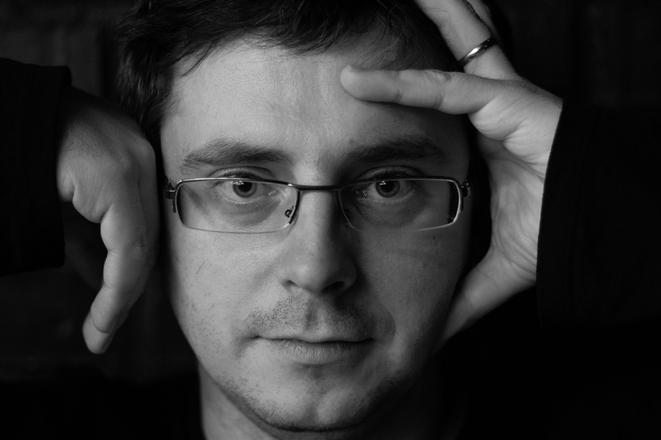When prominent Slovak contemporary musician Daniel Matej was going to turn 50 back in 2013, his colleague musician Ivan Šiller got the idea for a special present. He addressed Matej’s friends and colleagues and asked them to compose short pieces dedicated to Matej on the occasion of his birthday. The result is a colourful collection of contemporary music. He not only premiered, in cooperation with Fero Király the collection, simply called Fifty, in 2014, but earlier in 2018 released it on CD.
“It was one of the greatest, most beautiful and most delightful surprises of my life,” Matej writes in the booklet of the CD.
How it began
Šiller was inspired from Matej himself, since he had already initiated similar collections during the Evenings of New Music festival. One was dedicated to Erik Satie, another to Johann Sebastian Bach and the other to Charles Ives and Arnold Schönberg.
“It seems to me that a collection of compositions from people, with whom he has cooperated, would be a good birthday present,” Šiller told The Slovak Spectator.
The assignment was very open without any topic or musical theme. The musicians were only asked to compose a piece as long as 50 seconds or one-page long. The musicians approached the assignment in various ways, sending mostly one to three-page compositions.
“As a whole, the CD is a personal account by people, who know or cooperate with Daniel,” said Šiller.
Out of almost 30 compositions, it was the pieces by Peter Graham, Piet-Jan Von Rossum and Fero Király that appealed to Šiller right away. But he gradually found his way to all of the compositions.
“The collection shows how many different styles and how many different means of expression contemporary music has today,” said Šiller, adding that there are romantic pieces, compositions using the classical tonal language as well as experimental compositions using birdsong and strong beats on a piano.
Promoting contemporary music
Šiller himself is a great promoter of contemporary music, which is - based on musicological terminology - music not older than 30 years. He heads the Slovak section of the International Society for Contemporary Music (ISCM) and is a member of the Ensemble Ricercata, Cluster Ensemble and VENI ensemble, playing 20th century as well as contemporary music.
“Music will never cease to exist; composers will continue to compose,” said Šiller. He is against creating a kind of contemporary music when only some pieces are played for a selected audience during festivals.

While still many Slovaks prefer listening to traditional classical music, the interest of the local audience in contemporary music is slowly, but gradually growing, according to Šiller.



 Ivan Šiller (source: Courtesy of Ivan Šiller)
Ivan Šiller (source: Courtesy of Ivan Šiller)